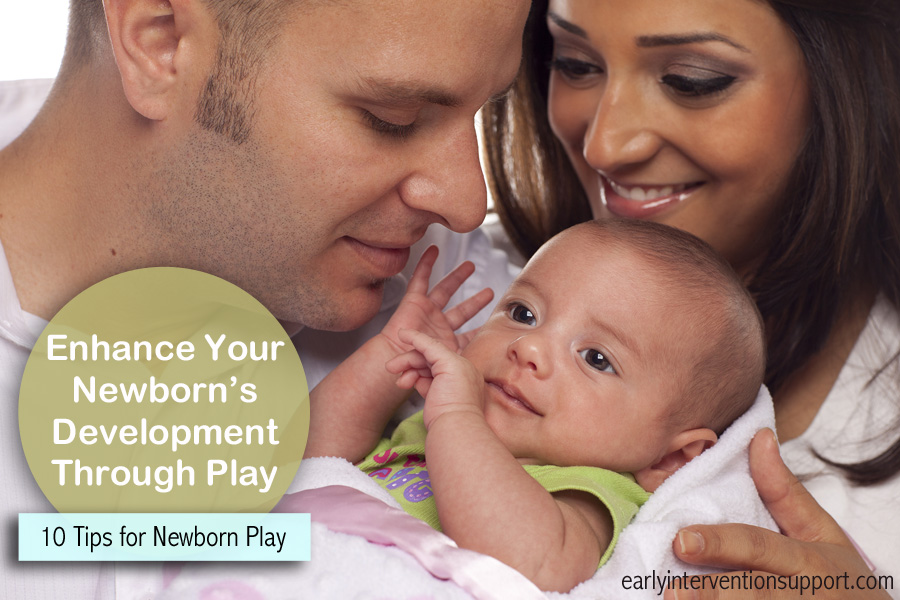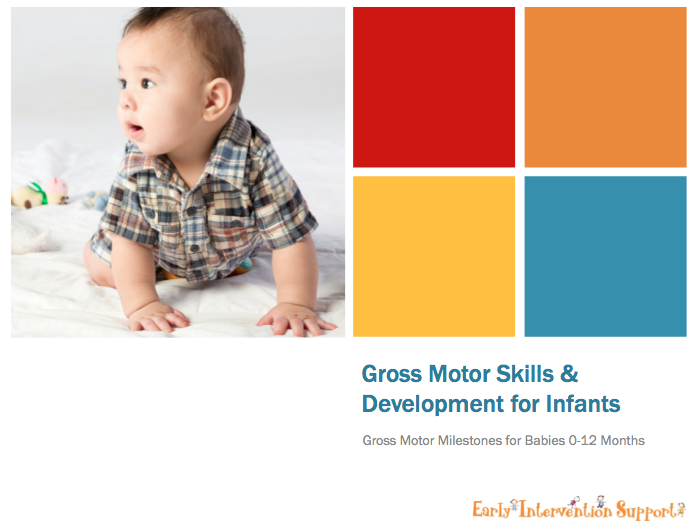We’ve all heard child development experts say time and time again that children learn through play. But what does that mean? And how do you ‘play’ with a newborn when they can’t yet move on their own, hold toys, or play games? The important thing to understand is that we have to expand our understanding of the word ‘play,’ and …
Gross Motor Skills for Infants Aged 0-12 Months
You can help support the development of your baby’s gross motor skills from the moment you bring them home. Gross motor skills involve the large muscles of the body, such as the arms and legs. – In early child development, it’s the strengthening of these muscles that enable infants to hold their head up, sit up independently, crawl, and eventually walk. Find out …
Q&A: Preemie Doesn’t Like Tummy Time
I have a 6.5 month old (she was 5 weeks early). She didn’t start lifting during tummy time until 2.5-3 months and she struggles to push herself up into supporting herself on her hands (crawling position) unless I push her up and then she can hold it for a few seconds, she had absolutely no interest in bearing weight until …
Visual Skills Development for Babies 1 – 4 Months
At this time infants should be following slowly moving objects intermittently to midline. When taking photos, you will begin to notice your baby blinking at the flash. Visual acuity is still in the 20/200 to 20/400 range. Infants are beginning to recognize familiar people, and by 3 months they should be reaching for things. By 4 months your child’s eyes …
Visual Skills Development for Newborn Babies
A physician will examine your newborn’s eyes at birth to rule out congenital cataracts and other serious problems. At this time an antibiotic will be put on the eyes to prevent infection from bacteria that was present in the birth canal. Nerve cells in the retina and brain that control vision are not completely developed. Therefore, infants can only see …
Developmental Delays in Premature and Late Preterm Babies
A Summary of the article by Maureen Salamon, HealthDay that appeared on USAToday.com February 2011 Recent studies seem to indicate that even babies who are considered “late preterm”, meaning they were born between 34-37 weeks gestation have more developmental delays than full term babies and in turn this can affect their later progress in school. In a study that was …
Cognitive Development for Babies 0 – 4 Months
When your baby is under four months, she’ll enjoy looking at herself in a mirror. Hold her in front of a mirror and see if she smiles and makes noises at herself. Feet are fun! Put a brightly colored sock on your baby’s foot. This will encourage her to look at her feet and pull at them and catch a …
Gross Motor Skills Development for Infants Aged 0 – 3 Months
Gross motor development involves the larger, stronger muscle groups. In early child development, it’s the development of these muscles that enable it to hold its head up, sit, crawl and eventually walk, run, jump and skip. Do these gross motor activities for infants with your baby to help them develop their muscles. For an infant under three months, gently flex your …
Common Health Problems with Premature Babies (Preemies)
Premature babies, typically referred to as “preemies” enter the word earlier than their full term peers, at 37 weeks or fewer gestation. Many preemies are born with low birth weight (under 5.5 lbs or 2500 grams) and require some extra medical attention or even a NICU (neonatal intensive care unit) stay. There are many causes that can lead to prematurity, …
How to Help Prevent Developmental Delay with Your Newborn Baby
Most parents have the best intentions when they bring home a new baby and obviously every family has a unique home situation. First time parents may hold their baby all the time. Some families are on the go, so the baby has frequent rides in the car seat. Some parents may keep their baby in a bouncy seat, a hammock …
- Page 1 of 2
- 1
- 2


